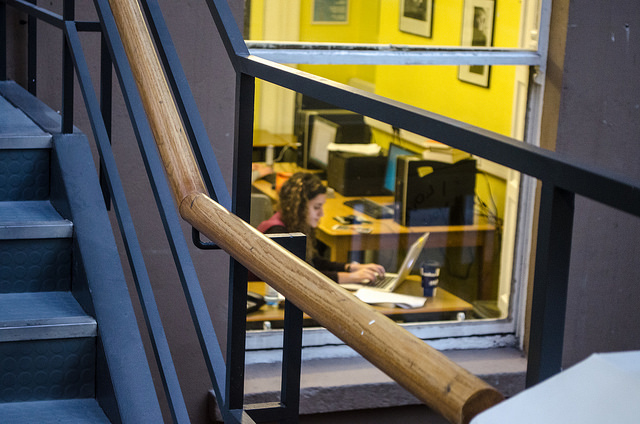With long hours and late nights the normal way of life for Trinity’s students and researchers, the College will introduce increased levels of supervision on campus for late-night workers, as part of a new update to its safety policy.
It is hoped that the policy will help alleviate the risks associated with working alone at night. Former University Safety Officer Tom Merriman, who has since retired, initially proposed that the College’s policies should strike a balance between Trinity’s desire to encourage research and the safety of its staff and students.
The changes will include risk assessment of individual faculties, an extension of the ways in which those working after hours can be identified and a re-think of Trinity’s policies on what gets characterised as high-risk and low-risk activities.
In an email statement to The University Times, Paul Mangan, Director of Estates and Facilities, described these measures as “part of an approach to ensure, so far as is reasonably practicable, the health, safety and welfare at work of our employees”. He pointed out that the university is legally required to take every feasible precaution to ensure the physical well-being of students who are studying on campus.
Trinity Fire Safety Officer Karl Flynn, speaking to The University Times, said that while these amended safety policies will not affect change in the current University Fire Safety Policy, several pieces of legislation, such as the Fire Services Acts 1981 and 2003, provide strict guidelines for employers in relation to workers’ safety. “Employers must have plans and procedures in place for emergencies which must cover first aid, fire-fighting, evacuation… and the designation of sufficient trained employees to carry out the emergency plans”, he explained.
When assessing risk, Mangan said Trinity must first identify the hazard associated with the activity, what is being done to protect the individual, an evaluation of the risks associated with that activity in that environment and “what else needs to be put in place to ensure there is adequate protection and the assignment of responsibilities”.
This practice will differ depending on whether the activity in question is being carried out after hours, because this work will be carried out “in a different environment, possibly by different personnel, with different levels of expertise and different supervision with different supports”.
In 2014, one postgraduate student died after drinking cyanide when he gained access to the Trinity Biomedical Sciences Institute in the early hours of the morning.







